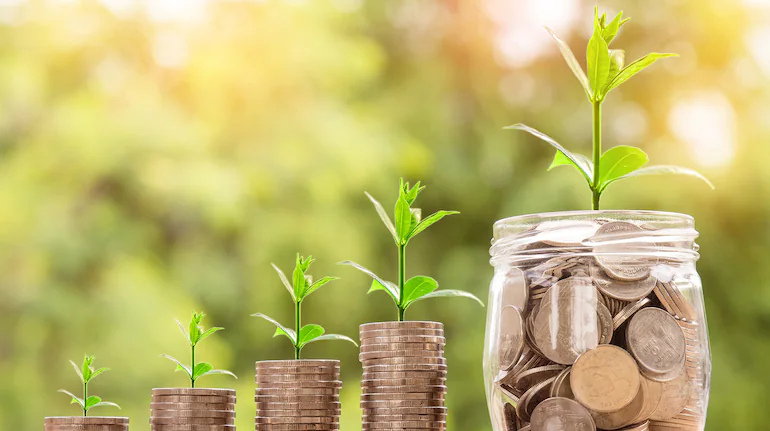There is an old proverb, ” The one who burns candles joyfully in the daytime, his home will remain dark after sunset.” True to the message, we need to understand how vital it is to develop some Good Financial Habits to secure our future. We all dream of living an extravagant life.
Simultaneously, we must be aware of our financial capabilities, priorities & responsibilities. To many of us, money comes like a turtle & goes like a rabbit. The obvious result is the cash crunch at the end of the month with zero savings. In today’s article, we will discuss some Best Positive Money Habits to avoid hardships in the future.
Good Financial Habits

1. Make a Budget and Stick to it
Making a Budget is a Good Financial Habits that will contribute extensively to your financial well-being. Your Budget will help you to understand your expenses better so that you can make adjustments & make sure that you live within your means. A significant thing to remember when making a budget is that you must be realistic & ensure that all obligatory expenses are met & provisions are made for savings before including any optional expenses.
By making a Budget, you will get a clear idea of your needs & wants, which will help you to control sudden expenses. But just making a Budget is not enough; you also have to stick to it to ensure that you have control over needless expenses & stay on track to accomplish your financial goals.
2. Frequently Review and Update Your Financial Plan
Having a plan for your money is one of the Best Positive Money Habits you will ever have. Nevertheless, more than just making an initial plan is needed. It is equally significant, if not more significant, to make sure you are reviewing and updating your plan frequently.
Your financial plan is there to help you to evaluate, plan, & improve your present & future financial life. It takes a snap of your current financial picture and your goals to help you make an action plan so you can easily steer financial decisions. To make the most of your plan & enhance your chances of success, you need to frequently check your plan at least once a month & try to update any necessary information at least every three to six months.
Notably, you should update your plan whenever essential life events occur – buying a new home, getting married, getting a new job or a salary hike, or starting some side venture, to name a few.
3. Prioritize Payment of Credit Card Debts & Outstanding Personal Loans
Preferably, you should avoid using loans to finance lifestyle expenses like the latest mobile phones, gadgets, clothes, etc. Still, many of us make the mistake of living beyond our means & this can cause high levels of debt in the form of unpaid credit card dues & outstanding Personal Loans. These can be very expensive as credit card interest rates on unpaid balances can be as high as 48% per annum, whereas personal loan interest rates can be as high as 24% per annum.
While having & using a credit card is not bad, you must control the urge to spend beyond your limits & ensure that you pay your credit card bill in full each month. If you have some outstanding personal loans, you should first ensure that you do not add to your on-hand debt burden. Moreover, you should also clear any outstanding personal loans as soon as possible to minimize the interest. Taking swift action to manage existing debt & reducing future debt can contribute significantly to your financial health.
4. Try Passive Income to Improve Your Income
If you want to create wealth & pay off your debts faster, you must find ways to make more monthly by passive income. Passive income is money you make residually through activities with minimal routine upkeep. Some examples of passive income include rental properties, stock dividends, or some side ventures. To make this a Good Financial Habits, get creative.
You don’t have to invest much money into something to get a return. You could easily rent a room in your home or even rent out your car or try blogging. The focus is to earn money, no matter what the amount is. If you can manage even $100 per month, it will add up to $1200 per year. You will have $1200 extra at your disposal to create an emergency fund or pay off loans.
5. Build an Emergency Fund
We all know that life is unpredictable & emergencies can come without warning. To be financially prepared for emergencies, you should create a sufficiently large emergency fund. The size of this fund can be between nine to twelve months’ expenses & you must make a habit of adding to the emergency fund as your monthly expenses & financial responsibilities enlarge over time.
The emergency fund provides a safety net and guarantees your long-term goals don’t get compromised. Since you have enough money to take care of some emergencies, you don’t have to cash in your investments for your long-term goals. An emergency fund ensures the intensifying journey of your investments doesn’t get disrupted by life’s challenges.
6. Get Some Insurance
As discussed in the earlier topic, life is full of uncertainties. Emergencies & calamities can arise without any warning. Therefore, it is advisable to get some insurance such as medical insurance, accidental insurance, property insurance, and life insurance. They will provide you peace of mind and assurance of support in any emergency. We all remember the tornado in Western Kentucky on 11th December 2021 & about the destruction it caused. It damaged several homes & killed about 74 people.
We are working in the office or sitting comfortably at home; we cannot guarantee that we will not meet some accident the next day. Insurances will not tell us these things will not happen to us, but they will promise in case of any accident, the financial side will be taken care of. Getting insurance and paying premiums in due time is equally important.
7. Be Disciplined with Your Investments
While the requirement of making investments cannot be overstated, having financial discipline when investing money is equally important. One way to make sure of good financial discipline is by making your investments through Systematic Investment Plans (SIPs).
The main benefit of making investments through SIP is Rupee Cost Averaging. At its core, SIP invests a particular amount into a specific Mutual Fund. So, using SIP, you will be able to purchase more units when the price of units lowers during market corrections & fewer units are purchased when the price of units is getting higher during market bull runs.
8. Ignore Short Term Volatility & Stay Focused For The Long Term
As an investor, you must accept the reality – Investments, especially Equity investments, are likely to offer short-term volatility. This is why you may see your portfolio witness ups & downs depending on current market conditions. But this volatility has always been momentary & the long-term capital appreciation offered by Equity investments has been unmatched so far.
Therefore, you must ignore the short-term volatility in your portfolio & ensure that you stay invested in the long term to enhance the potential returns from your investments.
9. Plan Your Retirement
Creating a plan for your future starts when you are young. If your company offers a 401k plan, take benefit of it, particularly if they match it. To start preparing for the future & grow better money habits, every bit of help is helpful. A part of your paycheck will go toward this investment account – a retirement account you can withdraw from post-retirement. There are also plenty of retirement plans offered by various insurance companies. Consider getting one.
10. Pay Yourself First
Creating Good Financial Habits doesn’t mean you will no longer buy things you like. With sufficient planning, you can find ways to enjoy yourself while saving money. Pay yourself & your debts first before you pay for your wants. It is nice to spend money on the things we like, but not at the expense of our future by not saving or trying to escape from outstanding loans.
By evaluating your budget & saving money frequently, you are paying yourself, so you can have a better future for yourself & your family, enjoy things you like, take care of loved ones & make your future secure.
Conclusion
When you develop Good Financial Habits, you set yourself up for financial success. Planning for your future, saving money, making successful investments & staying in control of your finances will lead you to the financial security of your dream. You will be prepared for unexpected expenses or emergencies, avoid penalties & late fees, and have money for a beautiful retired life.











